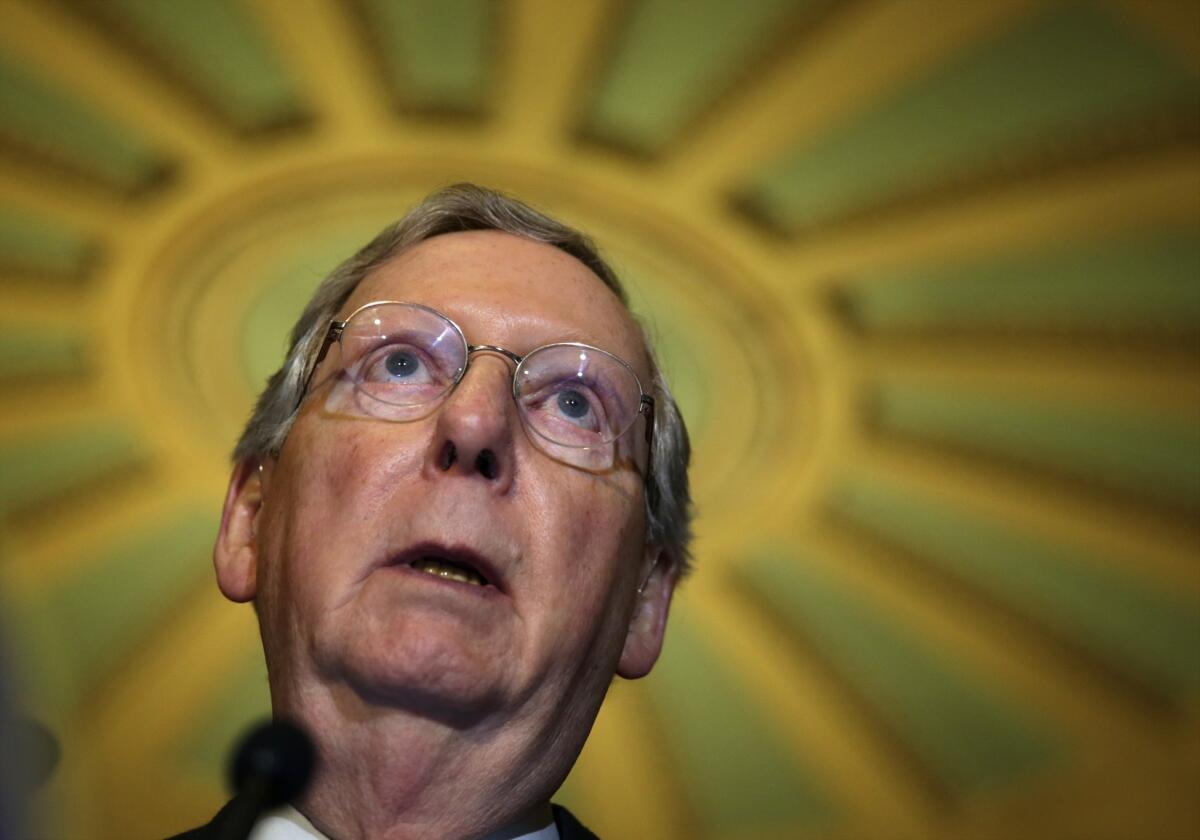Deal to avoid another government shutdown struggling in Senate

- Share via
WASHINGTON -- The congressional committee that is trying to negotiate a deal to prevent the next government shutdown has run into a roadblock: Senate Republican leader Mitch McConnell.
McConnell, the GOP minority leader, made the trek across the Capitol on Tuesday to tell a private session of House Republicans that his preference is not to give in when it comes to easing up on the mandatory budget cuts that are set to take effect Jan. 15.
“I wish them well,” McConnell said about the bipartisan House-Senate committee trying to craft a deal. “I hope they’ll comply with the law.”
McConnell’s foray into the budget talks come as the Kentucky senator is heading toward a tough reelection battle in the Bluegrass State where he faces not only a Democrat candidate, but a tea party-styled Republican challenging him from the right.
PHOTOS: 2013’s memorable political moments
Congress is facing another shutdown threat when money to fund the government runs out Jan. 15. At that time, the next round of so-called sequester cuts are set to slice across government departments, imposed by Congress as part of an earlier failed attempt to force a budget compromise.
Finding bipartisan agreement this time has been as tough as ever. Lawmakers from both parties increasingly view those sequester cuts as a bad idea, but the divisions inside the GOP have deepened.
Fiscal conservatives want to preserve the sequester cuts as their biggest trophy from the last several years of politically bruising fights with Democrats and the White House. But the party’s defense hawks, including Sen. John McCain (R-Ariz.), want to undo the Pentagon reductions, saying the cuts would decimate the Defense Department.
McConnell’s suggestion for keeping the top-line spending on par with the sequester cuts is not a recipe for compromise with Democrats. His proposal would essentially require shifting the reductions away from the Pentagon and onto other government programs, something Democrats have resisted as they push for new tax revenue by closing loopholes.
“That’s not where the American people are,” said Sen. Patty Murray (D-Wash.), who is leading the bipartisan budget committee with Rep. Paul Ryan (R-Wisc.) “They want us to solve the sequester issue. They don’t want the government to shut down again.”
The committee of House and Senate lawmakers has largely moved its work to the backrooms, with no public meetings scheduled. Top leaders face a Dec. 13 deadline to cut a deal.
Follow Politics Now on Twitter and Facebook
Twitter: @lisamascaroinDC
More to Read
Get the L.A. Times Politics newsletter
Deeply reported insights into legislation, politics and policy from Sacramento, Washington and beyond. In your inbox twice per week.
You may occasionally receive promotional content from the Los Angeles Times.










